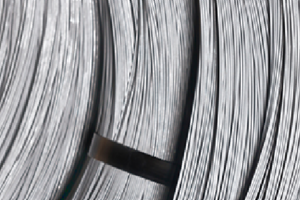Torsion Spring Material: Choosing the Ideal Option for Optimal Performance

Torsion springs are a crucial component in various mechanical and industrial applications. They provide rotational force, generating torque to store and release energy in devices such as garage doors, machinery, and automotive systems. The performance and reliability of torsion springs depend on several factors, including the choice of material. This article aims to explore different torsion spring materials, highlighting their properties, advantages, and considerations for selecting the ideal material for specific applications.
1. High Carbon Steel:
High carbon steel, commonly known as spring steel, is one of the most widely used materials for torsion springs due to its exceptional strength, durability, and cost-effectiveness. Its key properties include high yield strength, good fatigue resistance, and excellent elastic modulus. However, it is crucial to consider the potential for corrosion when using high carbon steel, especially in environments with high humidity or chemical exposure.
2. Stainless Steel:
Stainless steel is another popular choice for torsion springs, particularly when corrosion resistance is paramount. This material offers superior anti-corrosion properties, making it suitable for applications exposed to moisture, chemicals, or extreme temperatures. Stainless steel springs also possess excellent tensile strength, fatigue resistance, and long-term stability. However, it is relatively more expensive than high carbon steel, which should be weighed against the specific requirements of the application.
3. Music Wire:
Music wire, a high-carbon steel alloy, is renowned for its excellent tensile strength, superior elasticity, and fatigue resistance. It is commonly used in torsion springs that require high strength and reliable performance. Music wire springs can endure repeated cycles of loading and unloading without deformation or loss of elasticity. However, like high carbon steel, music wire is prone to corrosion and requires appropriate surface treatment or protective coatings when used in corrosive environments.
4. Phosphor Bronze:
Phosphor bronze is a copper-based alloy that offers excellent electrical conductivity and corrosion resistance. It is often utilized in electrical and electronic applications where torsion springs are required. With good spring properties, phosphor bronze springs exhibit stable performance over time, even in challenging environments. However, compared to steel alloys, phosphor bronze has lower tensile strength and may not be suitable for high-load applications.
Considerations for Material Selection:
When choosing the appropriate torsion spring material, several factors need to be considered:
a. Application requirements: Evaluate the required torque, cycles, working temperature range, and desired lifespan of the torsion spring.
b. Corrosion resistance: Determine the environment in which the spring will be exposed and select a material accordingly.
c. Cost: Weigh the performance requirements against the budgetary constraints.
d. Spring design: Consider the specific dimensions, shape, and load requirements of the spring design.
Conclusion:
Selecting the appropriate material for torsion springs is crucial for ensuring optimal performance, durability, and reliability in various mechanical and industrial applications. High carbon steel, stainless steel, music wire, and phosphor bronze are among the common materials used, each with specific properties and advantages. By considering the application requirements, corrosion resistance, cost, and spring design, engineers and designers can make informed decisions to select the most suitable torsion spring material for their specific needs.






